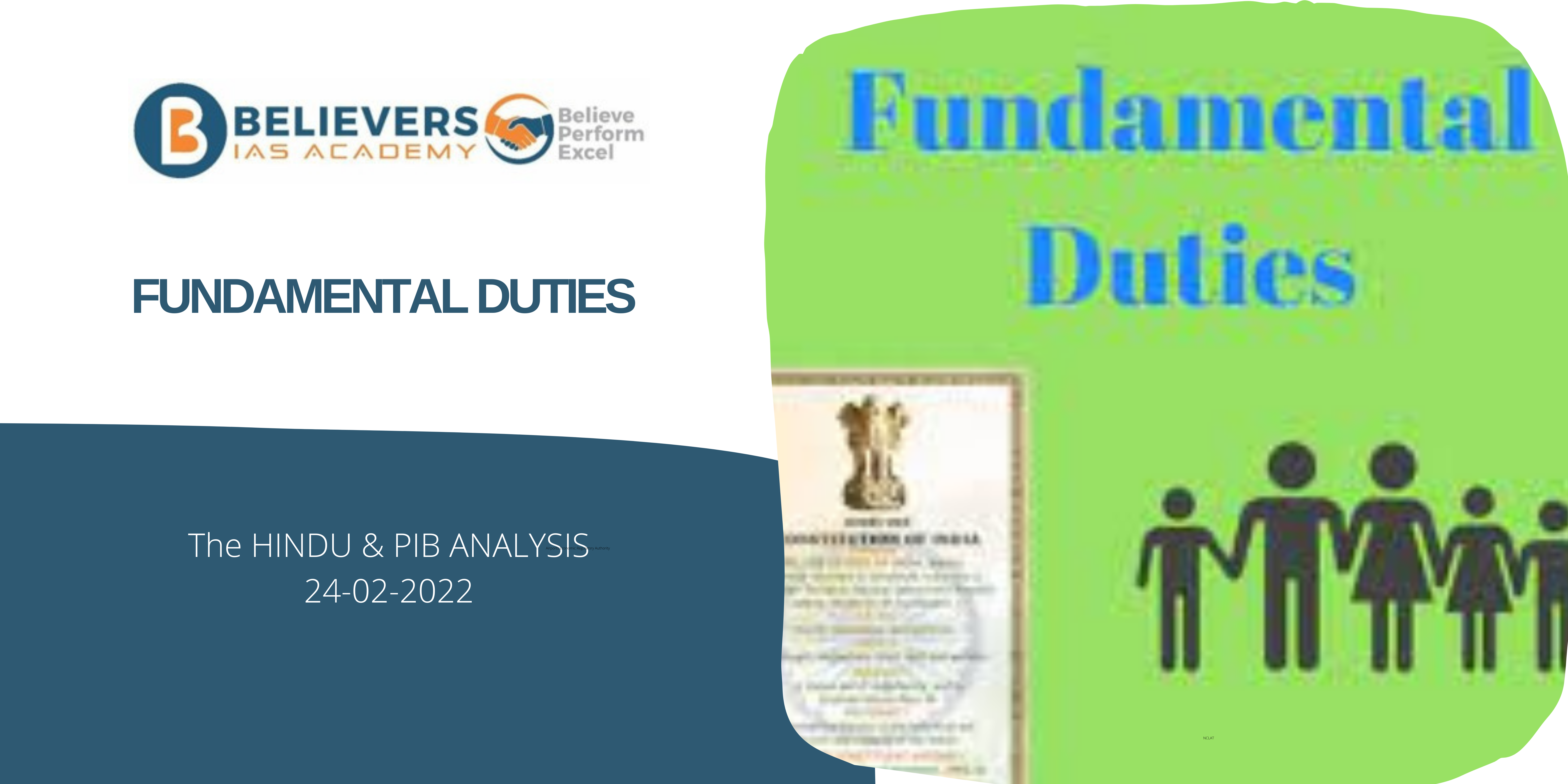Fundamental Duties
Context:
- The Supreme Court on Monday (February 21) issued notices to the Centre and states in a writ petition seeking the enforcement of the fundamental duties of citizens as enshrined in the Constitution of India.
Background:
- The fundamental duties were incorporated in Part IV-A of the Constitution by The Constitution (42nd Amendment) Act, 1976, during Indira Gandhi’s Emergency. Article 51(A) describes 11 fundamental duties — 10 came with the 42nd Amendment; the 11th was added by the 86th Amendment in 2002, when Atal Bihari Vajpayee was Prime Minister.
- These duties are not enforceable by law. However, a court may take them into account while adjudicating on a matter.
- They were made a part of the Constitution to emphasise the obligation of the citizen in return for the fundamental rights that he or she enjoys
Fundamental Duties:
Article 51(A) says it shall be the duty of every citizen of India:
“(a) to abide by the Constitution and respect its ideals and institutions, the National Flag and the National Anthem;
(b) to cherish and follow the noble ideals which inspired our national struggle for freedom;
(c) to uphold and protect the sovereignty, unity and integrity of India;
(d) to defend the country and render national service when called upon to do so;
(e) to promote harmony and the spirit of common brotherhood amongst all the people of India transcending religious, linguistic and regional or sectional diversities; to renounce practices derogatory to the dignity of women;
(f) to value and preserve the rich heritage of our composite culture;
(g) to protect and improve the natural environment including forests, lakes, rivers and wild life, and to have compassion for living creatures;
(h) to develop the scientific temper, humanism and the spirit of inquiry and reform;
(i) to safeguard public property and to abjure violence;
(j) to strive towards excellence in all spheres of individual and collective activity so that the nation constantly rises to higher levels of endeavour and achievement;
(k) who is a parent or guardian to provide opportunities for education to his child or, as the case may be, ward between the age of six and fourteen years.”
Source The Hindu


